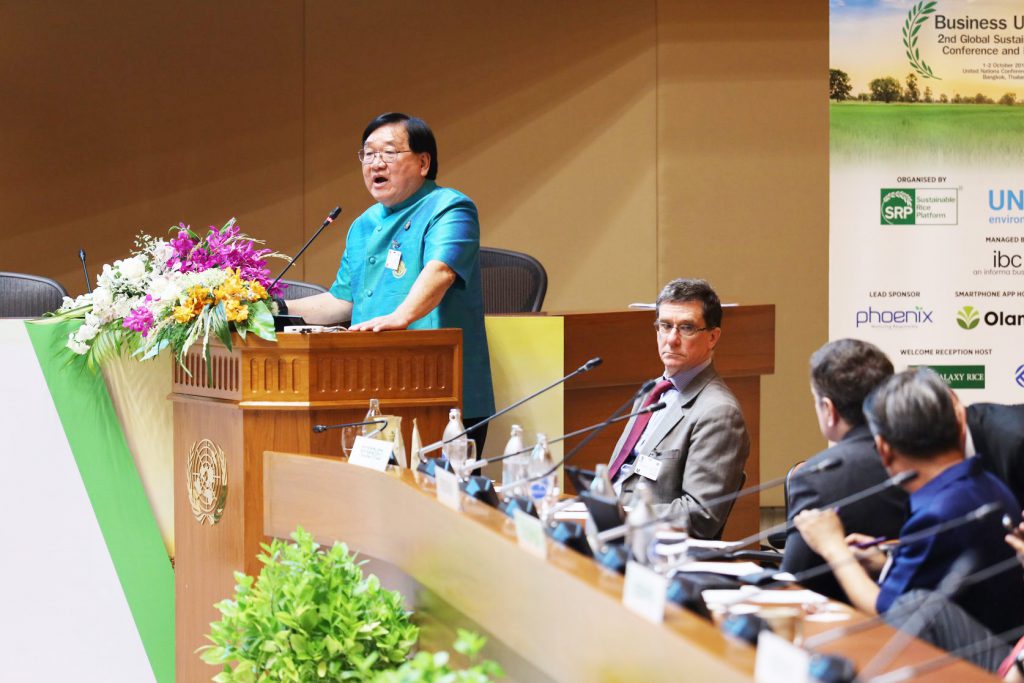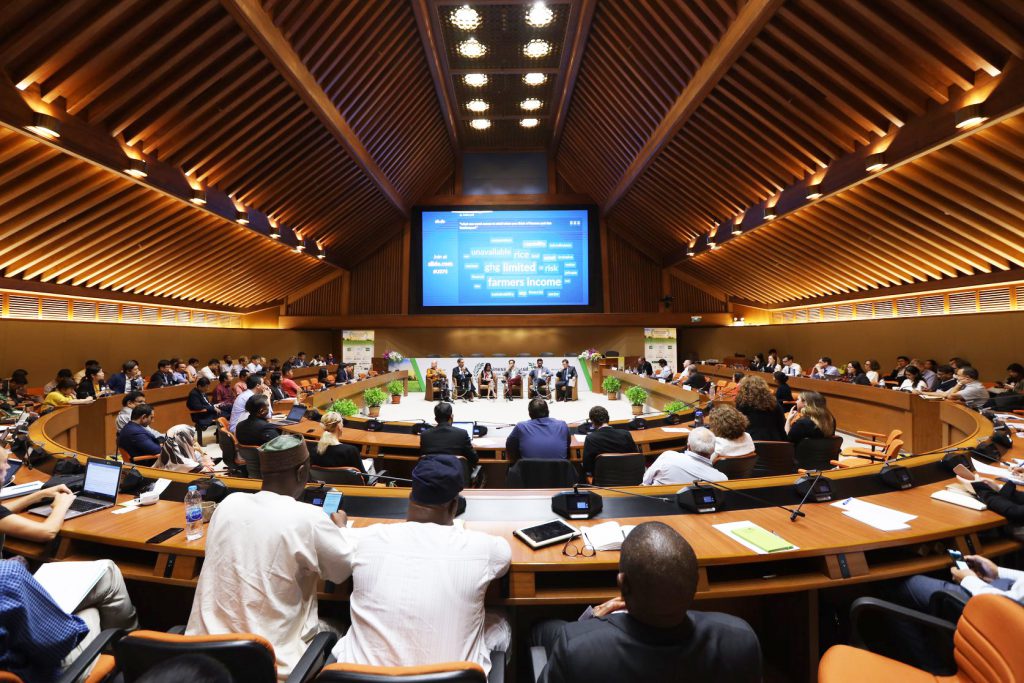With climate change, floods, droughts, and diseases making lives of local farmers more unbearable, Thai scientists are developing new rice strains that can resist both man-made and natural threats.
Deputy Agriculture Minister Prapat Pothasuthon said during his opening remarks at the 2nd Global Sustainable Rice Conference and Exhibition early October in Bangkok that his ministry is taking these threats seriously.
“The Ministry of Agriculture and Cooperatives has been consistently conducting research and development (R&D) for new rice varieties with scientific assistance from 30 R&D Rice Seedling Centers and 27 R&D Rice Centers nationwide to ensure premium quality of rice yields,” said Mr. Prapat.

However, as of now, the number of existing rice seedling centers is not enough to cover 17 million rai of rice plantations across the country.
“The ministry acknowledges the risks posed by climate change and is now doing every way possible to ease the negative impacts on crops and farmers’ lives.”

Following the two-day conference on 1-2 October 2019, the participants also joined the field trips to Suphan Buri and Chainat provinces where several joint projects to promote sustainable agriculture practices and low-emission farming techniques are being implemented such as Livelihoods Funds, BRIA – IPM Thailand, Thai Rice NAMA, and TGCP-Agriculture.
One of the gust farmers the participants met during the trip was Nipat Charoenthammaraksa, the owner of the Learning Centre of Farmer’s Way of Life and Wisdoms in Muang district of Suphan Buri, also known as “Na Here Chai”, whose business is producing and suppling rice seeds to hundreds of farmer families in the province.
“Honesty is the heart of my working philosophy. I want to produce good quality and affordable rice seeds,” Nipat told a group of foreign visitors at his center, adding that he was looking forward to working closely with the rice seed centers to develop a series of rice varieties that can withstand the effects of unpredictable disasters, especially hotter climates.

While Suriyan Vichitlekarn, deputy cluster coordinator for agriculture and food at German International Organization (GIZ) Thailand said the sustainable livelihoods of small-scale farmers and food security are possible only through a close partnership among public, private, farmers’ groups and international development organizations.
“Our close partnership could multiply outreach programmes that will facilitate wider production of sustainable rice production in Thailand,” Suriyan said.
The conference, held at the United Nations Conference Centre, featured a panel discussion covering a wide range of complex issues including the potential of collaborative approaches to drive large-scale and long-term change.
The participants were those involved in the rice supply chain from both public and private sectors.


